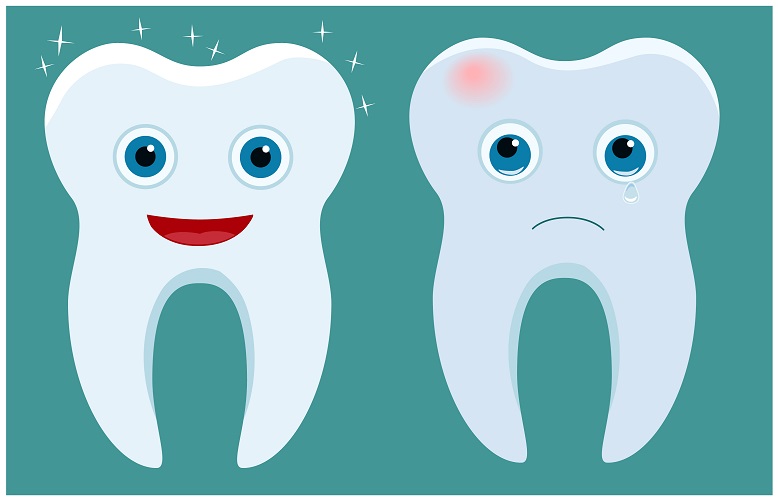The dental filling is one of the staples of conservative dentistry. The goal of the treatment is to save a tooth that has already been attacked by tooth decay, and to restore proper function to the tooth in question, and to conserve the tooth while replacing the decayed bits. Unfortunately, some amount of pain or discomfort can be expected after getting a dental filling. Usually, this uncomfortable feeling subsides in a few hours, but it is very important to keep an eye open for how your body reacts, and to be aware of any signs that something has gone wrong.

Pain directly after getting the dental filling
A dental filling is a kind of trauma for the teeth to be sure, and the teeth may react with a certain amount of pain directly after getting a dental filling, when the anaesthetic wears off and the nerves start to feel the damage that has been done. The most important thing is to be patient and leave enough time for the tooth to settle in and get used to the new state of things.
Your teeth may become more sensitive to cold or hot foods and drinks, or sudden drops and changes in temperature, or to the motion of chewing and biting, but this can all be alleviated by using toothpaste and mouthwash that has been specifically designed for sensitive teeth.
If the pain does not subside in a few days, then you must return to the dentist for a check-up, because the tooth filling may be defective or the tooth may be hurt, or there may still be decay present on the inside of the tooth.
Lasting pain
If the pain lasts for more than a few days, then it is safe to say that not all of the decay was removed. Very often, the tooth is still decaying around the filling, and this usually requires a root canal treatment. To do this, the dentist must make an x-ray of the tooth in question, as this will help the dentist to identify how hurt the tooth is, and see if the bone is inflamed at all. If you still feel pain after the root canal treatment, that is quite normal and can be expected, and the pain should slowly but surely subside, especially with ibuprofen or other anti-inflammatory drugs or painkillers.
Allergies
Tooth filling materials are always foreign to the human body, and as such, it is conceivable that the body may have a negative reaction to this. If the pain is particularly sharp, long lasting and will not subside, and is not a reaction to the mechanics of the mouth (like eating and drinking), or if you sense a swelling or any kind of change around the tooth, then you may want to contact your dentist, as it can be a sign that you are allergic to something used in the filling material. This is usually only a problem for amalgam fillings, as the mercury content of the amalgam tooth filling is highly allergenic. This is just one of the many reasons why dentists recommend replacing amalgam fillings with tooth coloured composite fillings, besides the very obvious aesthetic and health benefits of not having a darkly coloured metal in your tooth.

